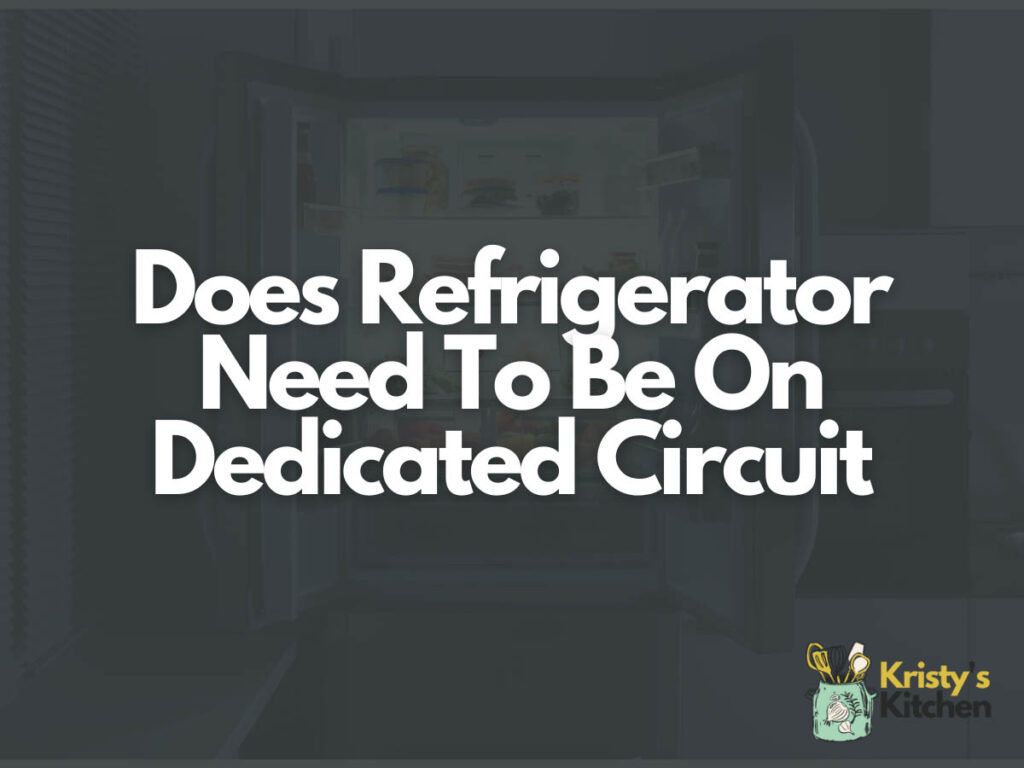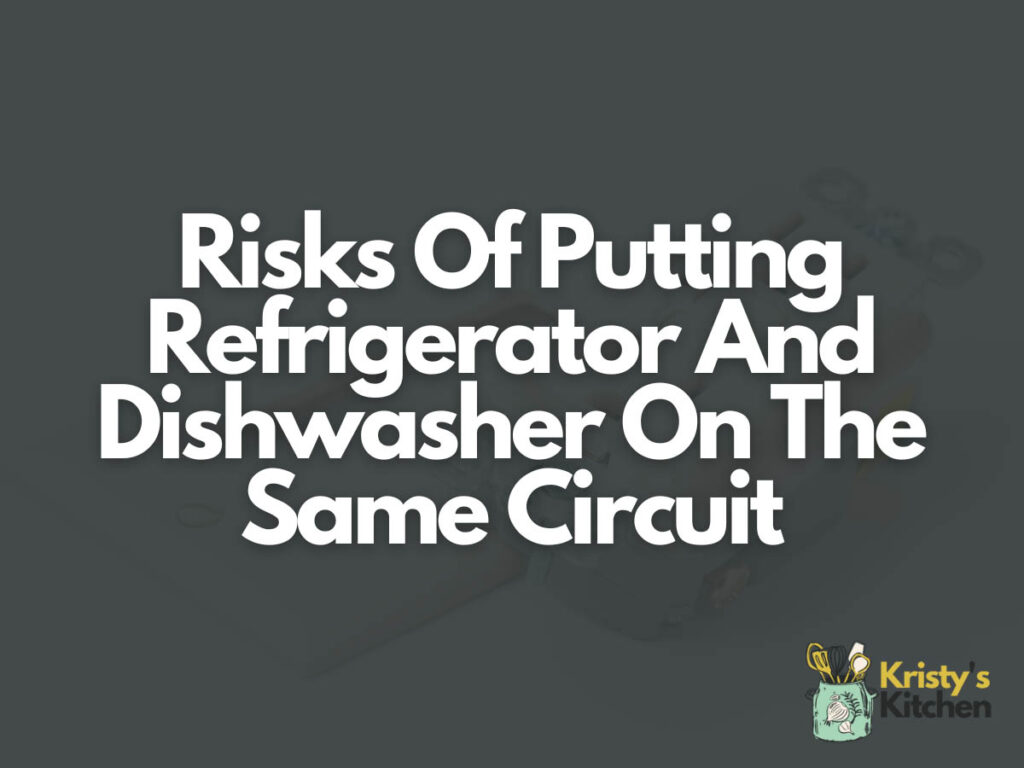Can A Fridge And Dishwasher Be On The Same Circuit?
Juggling your fridge and dishwasher on a common electric line might appear like a time-saver.
But before you fuse them together, let’s break down the details to see if this idea is as convenient as it sounds.
Long story short, don’t connect your fridge and dishwasher to the same electric line. The fridge cycles its power, and the dishwasher needs a lot for washing. If they share, it can mess up the flow, maybe trip the breaker, or even cause trouble.
I’ll explain that in more detail in this article. Let’s get started.
Does Refrigerator Need To Be On Dedicated Circuit?

Absolutely, your refrigerator should ideally have its dedicated circuit.
The reason extends beyond mere adherence to electrical codes; it’s about practicality and performance.
Refrigerators are prone to power fluctuations as they cycle on and off to maintain their set temperatures.
Plugging them into a dedicated circuit ensures that these fluctuations don’t interfere with other appliances, and it minimizes the risk of tripping the circuit breaker.
This is very important, as tripped breakers could lead to food spoilage and other inconveniences.
Is A Dishwasher Required To Be On A Dedicated Circuit?
Much like your refrigerator, a dishwasher thrives on its dedicated circuit.
Dishwashers are equipped with heating elements and motor-driven components that demand substantial electricity.
Placing them on a dedicated circuit prevents power draw conflicts with other appliances, optimizing the dishwasher’s performance and extending its lifespan.
Adhering to the National Electrical Code, which often recommends a dedicated circuit for high-power appliances, is a wise decision.
So, Can A Fridge And Dishwasher Be On The Same Circuit?
The answer is no. It’s not advisable to connect your refrigerator and dishwasher to the same circuit. Let me go through all the reasons why.
Think of it like this: if both your fridge and dishwasher use power from the same place at the same time, it’s like having too many things plugged into one outlet.
They both need a steady flow of electricity to work well.
But when they share a circuit, they might use too much power and make the circuit shut off. That means your appliances suddenly stop working, and that’s not what you want.
To make sure your appliances work safely and do their jobs properly, experts say it’s best to give each appliance its own circuit. It keeps everything organized and prevents any issues.
This way, your fridge and dishwasher can get the power they need without causing trouble.
Risks Of Putting Refrigerator And Dishwasher On The Same Circuit

Combining your refrigerator and dishwasher on a single circuit can trigger a cascade of undesirable consequences:
- Appliance Damage: Fluctuating power levels due to shared circuits can damage sensitive components, resulting in costly repairs or replacements.
- Safety Hazards: Overloaded circuits heat up, increasing the risk of electrical fires and posing potential dangers to your home and family.
- Inefficiency: Shared circuits can compromise the efficiency of both appliances. The dishwasher might struggle to complete cycles, and the refrigerator might struggle to maintain optimal temperatures.
- Electrical Network Strain: Repeatedly tripping the circuit breaker due to shared high-power appliances strains the overall electrical network of your home.
FAQs
Can a fridge and dishwasher be next to each other?
Yes, a fridge and dishwasher can be placed next to each other without any issues. Their physical proximity doesn’t affect their electrical circuits.
Can a dishwasher be on a small appliance circuit?
Yes, dishwashers can typically be connected to a small appliance circuit, as long as the circuit can handle the dishwasher’s power requirements.
Can a microwave and fridge be on the same circuit?
It’s generally not recommended to have a microwave and a fridge on the same circuit due to their high power demands. However, it’s possible to place the microwave on the same circuit as the dishwasher.
Can a stove and refrigerator be on the same circuit?
No, a stove and refrigerator should not share the same circuit. Stoves require a dedicated high-power circuit, while refrigerators should have their own dedicated circuit for optimal performance and safety.
Final Thoughts
While sharing is nice, it’s not the way to go for electrical circuits in your kitchen.
Appliances like fridges and dishwashers work best on their own circuits.
Letting them have their own circuits gives them the room they need to work hassle-free.
This little adjustment goes a long way in maintaining a trouble-free kitchen.
